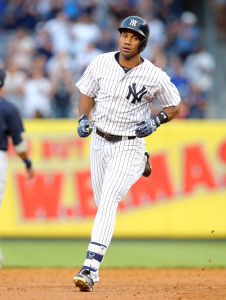Here’s a roundup of reactions to and news about David Price’s seven-year, $217MM pact with the Red Sox.
- The signing came together partly as a result of maneuvering regarding Price’s fellow free agent starting pitcher Zack Greinke, Ken Rosenthal of FOX Sports writes (Twitter links). The Dodgers and Giants wanted Greinke to make a decision, while Greinke wanted to know where the Red Sox stood. The Sox, who had increased their offer to Price yesterday, wanted him to come to a decision so they knew whether to turn their attention to Greinke or possibly others.
- The Cardinals made the second-best offer to Price, Bob Nightengale of USA Today writes. Their seven-year offer was, however, worth $30MM less than that of the Red Sox. The Cubs also met with Price, but did not extend an actual offer.
- The Red Sox’ willingness to offer a deal with no deferred money helped persuade Price to sign quickly, ESPN’s Jerry Crasnick tweets. (Of course, it must have also helped that the Red Sox’ offer was so much more lucrative than anyone else’s.) Price’s contract contrasts with the seven-year, $210MM deal Max Scherzer got last offseason, for example — although the dollar figures appear similar, Scherzer’s deal contains plenty of deferred compensation that reduces the deal’s present-day value. (Price’s deal also includes an opt-out after three years, while Scherzer’s does not.)
- Red Sox president of baseball operations Dave Dombrowski says the team is likely done making significant moves, reports John Tomase of WEEI.com. “We’ll be open-minded going into the Winter Meetings,” Dombrowski says. “We’ll see what happens over the next few days leading into that, but be in a position that I think our major moves are done. But when you go to the Winter Meetings, you can never tell what happens.” In addition to reaching an agreement with Price this offseason, the Red Sox have, of course, traded for closer Craig Kimbrel and signed outfielder Chris Young.
- Like Nightengale, Rosenthal also writes that Boston “blew away the field” with their offer. Rosenthal also notes that Price’s successes after being traded from the Rays to the Tigers and then the Blue Jays might have helped convince former Tigers exec Dombrowski that Price could succeed in a tough market.
- Price’s 2016 salary will add to a Sox payroll that appears likely to result in a large luxury tax penalty, Alex Speier of the Boston Globe writes. They could end up with a $215MM payroll for luxury tax purposes, which would result in a bill of about $9MM — 30% of the amount they spend over the $189MM threshold.
- The $31MM average annual value of Price’s contract isn’t a bad one for a large-payroll team like the Red Sox, and Price fits the Sox’ needs perfectly, writes ESPN’s Keith Law (Insider-only). Price immediately becomes by far the Red Sox’ best starter, and his combination of relative youth and good offspeed stuff suggests that he should age relatively gracefully in the next several seasons. Price’s addition should also help the team move Joe Kelly to a relief role for which he’s well suited. And signing Price, rather than, say, Greinke helps the Red Sox keep the 12th overall pick in next year’s draft, since Price wasn’t eligible to receive a qualifying offer after being traded at midseason.
- Price is a true ace, but the Red Sox are taking on lots of risk with his contract, Barry Svrluga of the Washington Post writes. Lengthy deals for pitchers frequently turn out to be troublesome, and if Price doesn’t take advantage of his opt-out, the last four years of his contract could become a headache. Also, Svrluga writes, Price (who has a 5.12 career ERA in 63 1/3 playoff innings) still must prove he can step up in the postseason.

